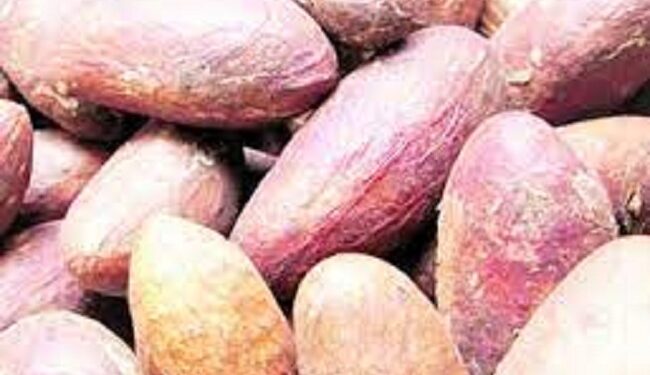It is one of the most recognisable expressions around: “An apple a day keeps the doctor away.” But besides this rhyme, experts have found bitter kola to be a close contender for protection against many diseases, including benign prostate enlargement.
Researchers, in a new study, said bitter kola because of its kolaviron content can protect against inflammation and oxidative stress reported to play a role in the development of benign prostate enlargement, also medically referred to as benign prostatic hyperplasia (BPH).
They had investigated the effect of kolaviron on induced BPH in rats. They reported that it caused a reversal in the proliferation of the cells of the prostate and significantly decreased prostate weight, prostate index, and levels of hormones and other substances in the body that account for an enlarged prostate gland.
The prostate index is an FDA-approved blood test used to aid in distinguishing prostate cancer from benign prostatic conditions. It assesses the severity of the symptoms of BPH.
The prostate is part of the male reproductive system and its main job is to make fluid for semen. It is about the size of a walnut, and it sits below the bladder and in front of the rectum. It goes around a tube called the urethra. The urethra carries urine from the bladder and out through the penis.
Benign prostatic hyperplasia is when the prostate and surrounding tissue expand. It is the most common benign tumour found in men. It produces symptoms by blocking the flow of urine from the bladder through the urethra. Symptoms related to BPH are present in about one in four men by age 55 and in half of 75-year-old men.
Men who are at a higher risk include men over the age of 50, men whose fathers have BPH, men who are overweight or obese, men who don’t stay active, and men with erectile dysfunction.
Surgery was the only option until the recent approval of minimally invasive procedures that open the prostatic urethra and drugs that can relieve symptoms either by shrinking the prostate or by relaxing the prostate muscle tissue that narrows the urethra.
However, drug side effects such as dizziness, headache, erectile dysfunction and loss of libido have limited these treatments. Therefore, alternative treatments involving natural products with little or no toxicity that are available, accessible and potent in combating BPH are highly warranted.
This study, which said that bitter kola can disrupt the processes that underline the abnormal growth of the gland, leading to benign prostate enlargement in rats, under laboratory conditions, was published in the journal, Inflammopharmacology.
It involved Ebenezer O. Farombi, Babajide O. Ajayi, Edward K. Opata, Abisoye O. Fafioye and Adetomilola T. Akinade, all at the Department of Biochemistry of the College of Medicine at the University of Ibadan.
A notable proven benefit of taking bitter kola includes its blood pressure-lowering effect. Researchers, in the March edition of Natural Product Communications, said increased intake of bitter kola by individuals taking the antihypertensive drug, Lisinopril, can ensure a significant reduction in blood pressure. Lisinopril is a conventional drug used to regulate blood pressure.
In animal studies, they found that the combination of kolaviron (extract of bitter kola) and lisinopril elicited significant contractions in blood pressure, producing up to 27 percent, 24 percent, and 22 percent reductions in systolic blood pressure, diastolic blood pressure, and mean arterial pressure, respectively.
Hypertension was induced in the Wistar rats, and they were treated with kolaviron and lisinopril for 28 days, after which blood pressure was determined. Also, the vital organs and blood of the animals were retrieved for analysis.
Previously, Cameroonian researchers involved in a single centre, single-arm non-randomised clinical trial also suggested that bitter kola supplementation in individuals with high normal or grade 1 hypertension is safe and significantly reduces their blood pressure.
Grade 1 hypertension is defined as having a systolic blood pressure of 140 to 159 mmHg and/or a diastolic blood pressure of 90 to 99 mmHg.
It included 25 adult patients with high normal blood pressure or grade 1 hypertension newly diagnosed and naïve to any antihypertensive treatment at the Yaoundé Central Hospital (YCH) between January and May 2019. They took two seeds (10 grammes each) of bitter kola every morning before breakfast and followed up for 30 days.
The median systolic blood pressure reduced from 136 mmHg to 123 mmHg, while the diastolic blood pressure went down from 84 mmHg to 76 mmHg at Day 30. No serious adverse effects were observed. It was in the 2021 edition of the Journal of Integrative Cardiology.
“This trial opens the way for further studies, which can lead to a large-scale use of this medicinal plant for the treatment of high blood pressure in countries where there is limited access to high-cost modern drugs,” they added.



